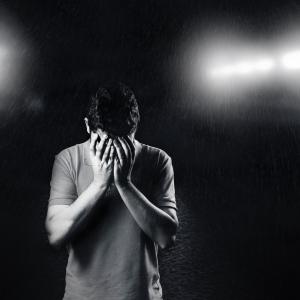Anxiety or Depression: Which Comes First?
Depression and anxiety are currently considered as separate disorders. Some people clearly have one or the other, but many people experience an overlap of symptoms. It is possible an individual could meet the criteria for both diagnoses, but people are more often diagnosed as having depression with anxiety symptoms, or less often, anxiety with depressive symptoms.
Similar Symptoms
The two disorders have a few symptoms in common. Both depressed and anxious people may complain of insomnia, restlessness, irritability, a tendency to isolate, and a change in appetite or eating habits. The difference lies in the feeling behind the symptoms.
Anxious individuals will experience these symptoms because of their fears and overactive nervous system, while depressed individuals feel a sense of dread, emptiness, or hopelessness behind these same symptoms. For example, a person may isolate because they are fearful of others, someone else because their emotional heaviness seems more manageable when they are alone.
One Disorder Can Trigger Symptoms of the Other
People with anxiety problems sometimes report feeling helpless or hopeless from being trapped by their fears. They might have disengaged themselves from society, and it is common for humans to have depressive feelings if they spend most of their time alone. Some individuals experience shame about having anxiety.
Those with depression are easily overwhelmed, which is a feeling akin to panic. The energy required to manage depression when at work or when socializing is immense, so the thought of getting through a day is nerve-wracking. If severely depressed, an individual might feel anxious about maintaining their job or being a good parent.
If a person suffers from obsessive-compulsive disorder (OCD), he or she may feel depressed about being trapped by their behaviors and thoughts. People with depression might also have OCD tendencies that exacerbate their depressive self-image. Human beings are complex, so it is no surprise that these disorders have fuzzy edges.
A New Diagnosis Combining Anxiety and Depression?
A revised Diagnostic and Statistical Manual for mental health disorders (the DSM-V) is scheduled to be released in 2013. Although a depression diagnosis can be specified to include anxiety symptoms in the DSM-V, there is no new diagnosis that blends the two disorders. They are still being categorized as separate but sometimes overlapping problems.
Maybe someday researchers will discover that one disorder precedes the other, but for now, that question still belongs to chickens and eggs.
Photo: Pexels





